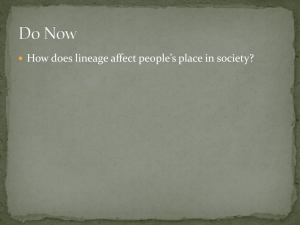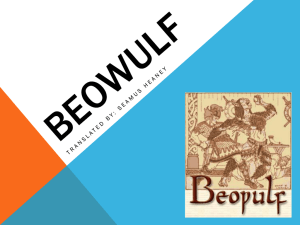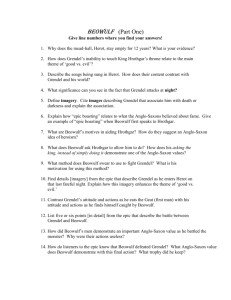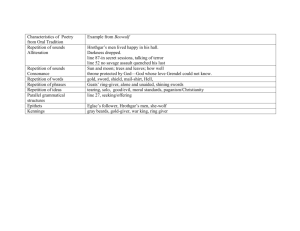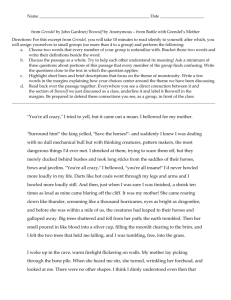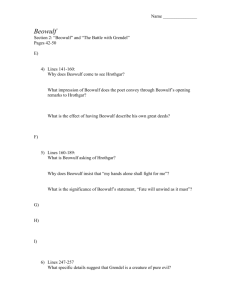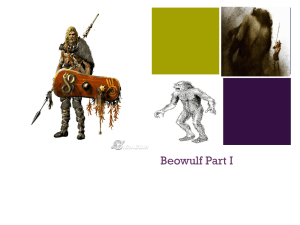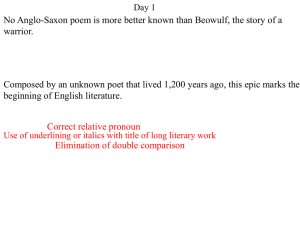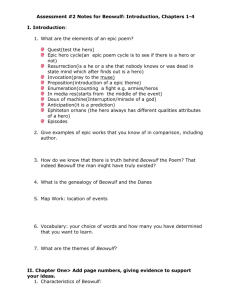Beowulf
advertisement
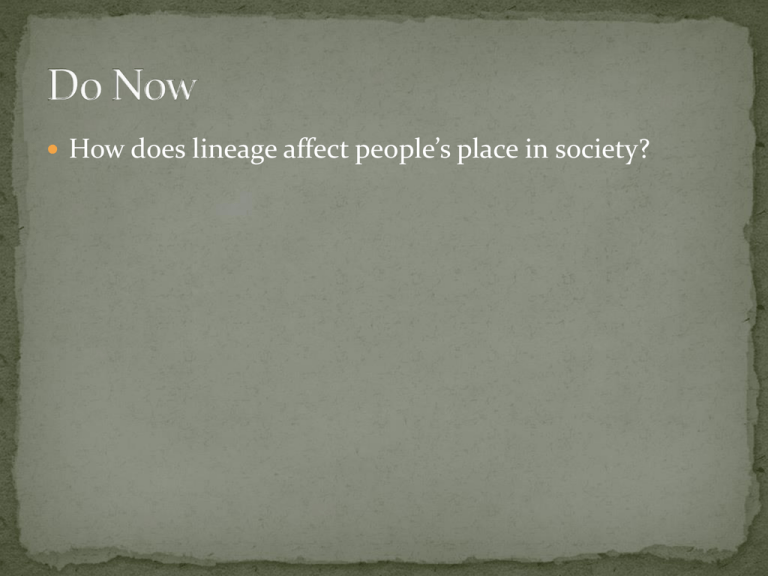
How does lineage affect people’s place in society? Epic – a long narrative poem, sometimes developed orally, that celebrates the deeds of a legendary or heroic figure Legendary hero – larger than life character whose accomplishments are celebrated in traditional tales Boastful self-confidence Feats of strength Victories in battle Beowulf – Geat Hrothgar – Dane The clergy was the first group to record the story of Beowulf. At the time Beowulf was recorded, Christianity was spreading through Europe. Elements of the story are indicative of the struggle between paganism and Christianity that was occurring at the time. Beowulf Christ-like figure Grendel’s mother Biblical portrayals of women What does the story of Grendel’s origins suggest about the beliefs of Anglo-Saxon culture? Terrorized by Grendel, Hrothgar and his followers face “Twelve winters of grief.” How does the length of their suffering increase the epic feelings of this tale? How do word choice and stylistic features of the watchman’s speech add a serious epic tone to his question? (Page 43) How do Beowulf’s boasts of great deeds and his announcement of his plan establish him as a hero? How do the “renamings” of Grendel in Line 325 emphasize the significance of the battle that is about to begin? Which details from the description of the battle between Beowulf and Grendel add realism? Which details add epic grandness? (Page 48) Examine the role of religion in the story. Look for examples of conflict between Christianity and paganism. Read The Monsters’ Lair and The Battle with Grendel’s Mother, pages 49-53, and answer corresponding questions. Women are often portrayed in literature in stereotypical ways. Which stereotypes have you seen in other novels or stories you’ve read? How does the setting of the battle add to its epic significance? Consider what it shows about the realms in which Beowulf has power. How is Grendel’s mother described in these sections? How does this fit in with stereotypes of women that you have previously encountered in literature? Biblical portrayals of women Perfect and angelic Temptresses and prostitutes Eve Look for descriptions of Grendel’s mother in the story. Take note of how she is portrayed and how her portrayal is stereotypical of women in literature. Read The Last Battle, The Spoils, and The Farewell, pages 54-60, and answer corresponding questions. What are the possible benefits and disadvantages of living a solitary life? According to Wiglaf, what is Beowulf’s relationship with his followers like? What does Wiglaf’s decision suggest about the way in which a legendary hero can inspire heroism in others? In Beowulf’s death scene, what is shown about the importance in warrior culture of the commem0ration of individuals after death? Look for connections between Beowulf and other solitary figures in history and literature. In a short speech, justify why it was or was not necessary for Beowulf to be a lonely character in order to be successful. Study for quiz. Quiz Quote identification Spelling counts – you must spell characters’ names correctly. You are responsible for everything from the PowerPoint. Definitions, examples, etc. You must provide concrete, specific examples from the story to receive full credit on all open-ended questions.



